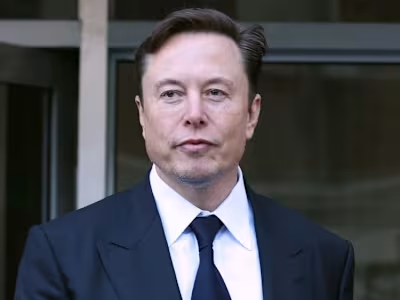Project 165
Title -Shadows of Influence: Informal Imperialism in Europe and the Ottoman Empire
Shadows of Influence: Informal Imperialism in Europe and the Ottoman Empire," which explores various dimensions of informal imperialism in historical contexts:
1. Introduction: The Concept of Informal Imperialism - This chapter introduces the concept of informal imperialism, explaining its significance and how it differs from formal imperialism.
2. Theoretical Perspectives on Informal Empire - Discusses different theoretical frameworks and interpretations that scholars have used to understand informal imperialism.
3. Economic Strategies and Informal Empire - Explores how economic interests and strategies were pivotal in the establishment of informal empires, focusing on trade and investment as tools of influence.
4. Diplomatic Maneuvering and Influence - Analyzes the role of diplomacy in establishing and maintaining informal control, highlighting key diplomatic efforts and treaties.
5. Cultural Imperialism: Soft Power Dynamics - Investigates how cultural influence and the spread of Western norms and values helped to underpin informal imperialism.
6. Case Study: British Informal Empire in the Ottoman Empire - Provides a detailed examination of how Britain exerted its influence in the Ottoman Empire through economic, political, and cultural means.
7. French Informal Imperialism in North Africa - Looks into France's strategies of influence in North Africa, emphasizing economic penetration and cultural dominance.
8. German Economic Penetration in the Ottoman Empire - Studies Germany's economic activities in the Ottoman Empire and their implications for informal imperial control.
9. Legal Frameworks and Extraterritorial Rights - Reviews the legal structures that facilitated informal imperialism, including extraterritorial rights and international law.
10. The Role of Private Companies and Entrepreneurs - Focuses on the contributions of private companies and individual entrepreneurs in expanding informal imperial control.
11. Informal Imperialism and Military Alliances - Examines how military alliances and interventions supported the aims of informal imperialism.
12. Resistance and Adaptation in the Ottoman Empire - Discusses the responses of local populations and elites to foreign influence, including resistance and adaptation strategies.
13. The Intersection of Nationalism and Imperialism - Explores how rising nationalist movements interacted with and were shaped by the dynamics of informal imperialism.
14. Imperialism and the Transformation of Ottoman Society - Looks at how Ottoman society was transformed through contact with Western powers, focusing on social, economic, and cultural changes.
15. Informal Imperialism and Modernization - Investigates the role of informal imperialism in the modernization processes within the Ottoman Empire and other regions.
16. The Impact of Informal Imperialism on International Law - Examines how practices of informal imperialism influenced the development of international legal norms and frameworks.
17. Comparative Studies: Informal Imperialism in Latin America and Asia - Provides a comparative analysis of informal imperialism in the Ottoman Empire with similar practices in Latin America and Asia.
18. The Decline of Informal Empire - Analyzes the factors leading to the decline of informal empires, including changes in international politics and local resistance movements.
19. Historiographical Debates on Informal Empire - Discusses the different historical interpretations and debates surrounding the concept of informal imperialism.
20. Conclusion: Legacies of Informal Imperialism - Reflects on the long-term impacts of informal imperialism on modern states and international relations, considering its lasting legacies.
Chapter-1 :The Concept of Informal Imperialism
Introduction:-
Imperialism, in its various forms, has shaped global history significantly, influencing political boundaries, economic systems, cultural exchanges, and societal hierarchies. While traditional forms of imperialism often involved direct territorial conquest and colonization, the concept of informal imperialism presents a more nuanced and covert approach to exerting influence and control. This essay delves into the multifaceted nature of informal imperialism, exploring its definitions, historical examples, mechanisms, and impacts on global politics and economics.
Definitions and Theoretical Framework:-
Informal imperialism, unlike its formal counterpart, does not rely on overt political domination or territorial annexation. Instead, it involves the use of economic, political, and cultural influence to control or manipulate another country's policies, economies, and social structures without direct governance. Theoretical frameworks for informal imperialism are grounded in the ideas of economic dependence, cultural hegemony, and political influence.
Economic Dependence:-
One of the core components of informal imperialism is economic dependence. Developed nations often use their economic power to create dependencies in less developed countries through trade, investment, and financial aid. This economic relationship can lead to a situation where the dependent country’s economy is closely tied to, and often controlled by, the interests of the dominant nation. This control can be exercised through various means, including:
Trade Imbalances: Dominant nations may establish trade policies that favor their own economies, creating a dependence on their markets and products.
Investment: Significant foreign investment can lead to control over key industries and resources in the dependent country.
Debt: Offering loans and financial aid can create a cycle of debt dependency, where the recipient country is beholden to the lender's terms and conditions.
Political Influence:-
Political influence is another crucial aspect of informal imperialism. Dominant nations often exert control over the political decisions and governance structures of less powerful countries through diplomatic pressure, support of particular political factions, and strategic alliances. This influence can be seen in:
Diplomatic Pressure: Using international diplomacy to influence policy decisions, alignments, and alliances.
Support of Political Factions: Providing support to political parties or leaders who are sympathetic to the interests of the dominant country.
Strategic Alliances: Forming alliances that ensure the political alignment and cooperation of the dependent country.
Cultural Hegemony:-
Cultural hegemony plays a significant role in informal imperialism, with the dominant country often imposing its cultural values, norms, and ideologies on the dependent nation. This can lead to the erosion of local cultures and the adoption of the dominant culture’s practices and beliefs. Mechanisms of cultural hegemony include:
Media and Communication: Dominating media channels to influence public opinion and cultural norms.
Education: Promoting educational curricula that reflect the dominant culture's values and historical perspectives.
Language: Encouraging or imposing the use of the dominant language in business, government, and education.
Historical Examples of Informal Imperialism:-
To understand the concept of informal imperialism more concretely, it is helpful to examine historical instances where these dynamics have played out. Some notable examples include the British influence in Latin America in the 19th century, the United States' influence in Central America and the Caribbean, and contemporary Chinese influence in Africa.
British Influence in Latin America:-
In the 19th century, after the independence movements across Latin America, the region became an area of significant British economic influence. Britain did not establish formal colonies but exerted considerable control through economic means. Key elements of British informal imperialism in Latin America included:
Trade Dominance: Britain established itself as a major trading partner, supplying manufactured goods and purchasing raw materials.
Investment: British capital was heavily invested in Latin American infrastructure projects, such as railways and ports, which facilitated trade.
Debt: Latin American countries accrued significant debt to British banks, giving Britain leverage over their economic policies.
U.S. Influence in Central America and the Caribbean:-
The United States has a long history of informal imperialism in its "backyard," particularly in Central America and the Caribbean. This influence has been exerted through a combination of economic control, political intervention, and military presence. Key aspects include:
Economic Control: The United States established economic dominance through investments in agriculture, particularly in the banana and sugar industries, leading to the term "banana republics."
Political Intervention: The U.S. has frequently intervened in the political affairs of these nations, supporting coups and installing leaders favorable to American interests.
Military Presence: The presence of U.S. military bases and interventions in the region has ensured political stability in line with American interests.
Chinese Influence in Africa:-
In recent decades, China has emerged as a significant player in Africa, engaging in what many describe as a form of informal imperialism. Chinese influence in Africa is characterized by:
Investment in Infrastructure: China has invested heavily in African infrastructure, building roads, railways, and ports, which facilitates trade and economic dependence.
Trade: China has become a major trading partner for many African countries, supplying manufactured goods and purchasing raw materials.
Loans and Aid: Chinese loans and development aid come with conditions that often align with China's strategic interests, creating a form of economic dependency.
Mechanisms of Informal Imperialism:-
Informal imperialism operates through a variety of mechanisms that allow dominant countries to exert influence without formal control. These mechanisms include economic policies, political strategies, cultural exports, and strategic partnerships.
Economic Policies:-
Economic policies are a primary tool of informal imperialism. By influencing trade agreements, investment policies, and financial systems, dominant countries can shape the economic landscape of dependent nations. Key tactics include:
Trade Agreements: Negotiating trade agreements that favor the dominant country's economic interests.
Foreign Direct Investment (FDI): Using FDI to control key industries and resources in the dependent country.
Conditional Aid and Loans: Providing financial aid and loans with conditions that influence the recipient country's economic policies and governance.
Political Strategies:-
Political strategies are employed to ensure that the political environment in the dependent country remains favorable to the interests of the dominant nation. These strategies include:
Diplomatic Engagement: Using diplomacy to influence political decisions and alliances.
Support for Political Leaders: Providing support to political leaders and parties that align with the dominant nation's interests.
Military Assistance: Offering military training, equipment, and support to influence the defense policies and strategic alignments of the dependent country.
Cultural Exports:-
Cultural exports are used to establish cultural hegemony, making the values and norms of the dominant country more pervasive. This can be achieved through:
Media and Entertainment: Exporting movies, television shows, and music that promote the dominant culture’s values and lifestyles.
Educational Programs: Establishing educational programs and institutions that reflect the dominant culture’s educational values and curricula.
Language Promotion: Encouraging the use of the dominant language through media, business, and education.
Strategic Partnerships:-
Forming strategic partnerships is another method of informal imperialism. These partnerships can take various forms, such as:
Economic Partnerships: Creating economic alliances that integrate the dependent country into the dominant nation’s economic system.
Security Alliances: Establishing security alliances that ensure the dependent country's military and defense policies align with the dominant nation's strategic interests.
Multilateral Organizations: Influencing multilateral organizations to create frameworks that support the dominant nation’s interests and policies.
Impacts of Informal Imperialism:-
The impacts of informal imperialism are multifaceted, affecting the political, economic, and social landscapes of both the dominant and dependent countries. These impacts can be both positive and negative, depending on the perspectives and contexts involved.
Political Impacts:-
Politically, informal imperialism can lead to a loss of sovereignty and autonomy for the dependent country. Key political impacts include:
Loss of Sovereignty: Dependent countries may find their political decisions heavily influenced or dictated by the dominant nation.
Political Instability: External influence can lead to internal political instability, as different factions vie for power with the backing of foreign interests.
Erosion of Democratic Processes: The promotion of leaders and policies favorable to the dominant country can undermine local democratic processes and institutions.
Economic Impacts:-
Economically, informal imperialism can create dependencies that hinder sustainable development and self-sufficiency. Key economic impacts include:
Dependency on Foreign Investment: Dependent countries may become reliant on foreign investment, limiting their ability to develop independent economic policies.
Trade Imbalances: Trade policies favoring the dominant nation can lead to trade imbalances, where the dependent country exports raw materials and imports finished goods, stunting local industrial growth.
Debt Dependency: Heavy reliance on loans and financial aid can lead to a cycle of debt, where the dependent country is constantly repaying debts rather than investing in its own development.
Social and Cultural Impacts:-
Socially and culturally, informal imperialism can lead to the erosion of local identities and the adoption of foreign values. Key social and cultural impacts include:
Cultural Erosion: The dominance of foreign media and cultural products can lead to the erosion of local traditions, languages, and cultural practices.
Social Inequality: Economic policies favoring foreign interests can exacerbate social inequalities within the dependent country, as certain groups benefit more than others.
Shift in Social Norms: The promotion of foreign cultural values can lead to shifts in social norms and behaviors, aligning them more closely with those of the dominant country.
Contemporary Examples and Case Studies:-
To further illustrate the concept of informal imperialism, contemporary examples and case studies provide valuable insights. Two notable examples are the influence of the United States in the Middle East and China's Belt and Road Initiative.
Conclusion:-
The concept of informal imperialism provides a nuanced understanding of how powerful states exert influence over weaker states without formal annexation or direct colonial control. This form of imperialism is characterized by economic dominance, political pressure, and cultural influence, allowing the imperial power to achieve its strategic objectives while maintaining the appearance of sovereignty in the target state.
Informal imperialism operates through mechanisms such as trade imbalances, financial control, diplomatic interventions, and cultural infiltration. These mechanisms enable the imperial power to manipulate the political and economic landscapes of the weaker state, securing access to resources, markets, and strategic advantages. Unlike traditional colonialism, which involves direct governance and territorial occupation, informal imperialism relies on subtler forms of dominance that can be more sustainable and less costly for the imperial power.
The Ottoman Empire serves as a prime example of a state subjected to informal imperialism. Throughout the 19th and early 20th centuries, European powers, particularly Britain, France, and Russia, exerted significant influence over the Ottoman economy, politics, and society. Treaties such as the Treaty of Balta Liman and the establishment of the Ottoman Public Debt Administration exemplify how economic concessions and financial control facilitated European dominance. The Tanzimat reforms, while aimed at modernization and centralization, were also influenced by European pressure and served to integrate the Ottoman Empire into the global economy in a manner beneficial to European interests.
The effects of informal imperialism on the Ottoman Empire were profound. Economically, the empire became increasingly dependent on European capital and markets, undermining its economic sovereignty. Politically, the loss of autonomy and the manipulation of internal affairs by foreign powers weakened the state's ability to govern effectively. Socially and culturally, the influx of Western ideas and practices led to significant changes and tensions within Ottoman society, contributing to the rise of nationalist movements and the eventual disintegration of the empire.
In the broader context, informal imperialism has continued to shape international relations and the global order. The patterns established during the era of informal imperialism in the 19th century can be seen in contemporary practices where powerful states influence the policies and economies of weaker states through economic aid, trade agreements, and cultural diplomacy. Understanding the dynamics of informal imperialism helps to explain the complexities of modern geopolitics and the enduring impact of historical power relations.
In conclusion, informal imperialism represents a sophisticated and enduring form of dominance that allows powerful states to achieve their strategic objectives without resorting to outright colonization. By leveraging economic, political, and cultural tools, imperial powers can exert significant influence over weaker states, shaping their development and policies in ways that serve the interests of the dominant state. The case of the Ottoman Empire illustrates the profound impact of informal imperialism, highlighting the intricate interplay between sovereignty and external influence in the shaping of modern history.
Chapter-2 :Theoretical Perspectives on Informal Empire
Introduction:-
The concept of "informal empire" has emerged as a significant framework for understanding the nuanced dynamics of imperialism that go beyond formal territorial control. Informal empire refers to the influence exerted by powerful states over weaker regions through economic, political, and cultural means rather than through direct colonization or formal annexation. This essay aims to explore the various theoretical perspectives on informal empire, examining its historical development, key features, and implications for contemporary global relations.
Historical Development of Informal Empire:-
The term "informal empire" originated in the study of British imperialism, particularly in regions where British influence was significant without formal sovereignty. The 19th-century British influence in Latin America and China exemplifies the informal empire. The British East India Company's trade dominance in India before direct control in 1858 and the economic penetration in Latin American countries like Argentina and Brazil without formal colonization are classic examples. Scholars such as John Gallagher and Ronald Robinson were pivotal in highlighting these dynamics in their seminal work "The Imperialism of Free Trade" (1953), arguing that economic and political influence
Like this project
Posted May 26, 2024
Shadows of Influence: Informal Imperialism in Europe and the Ottoman Empire," which explores various dimensions of informal imperialism in historical contexts
Likes
0
Views
0




